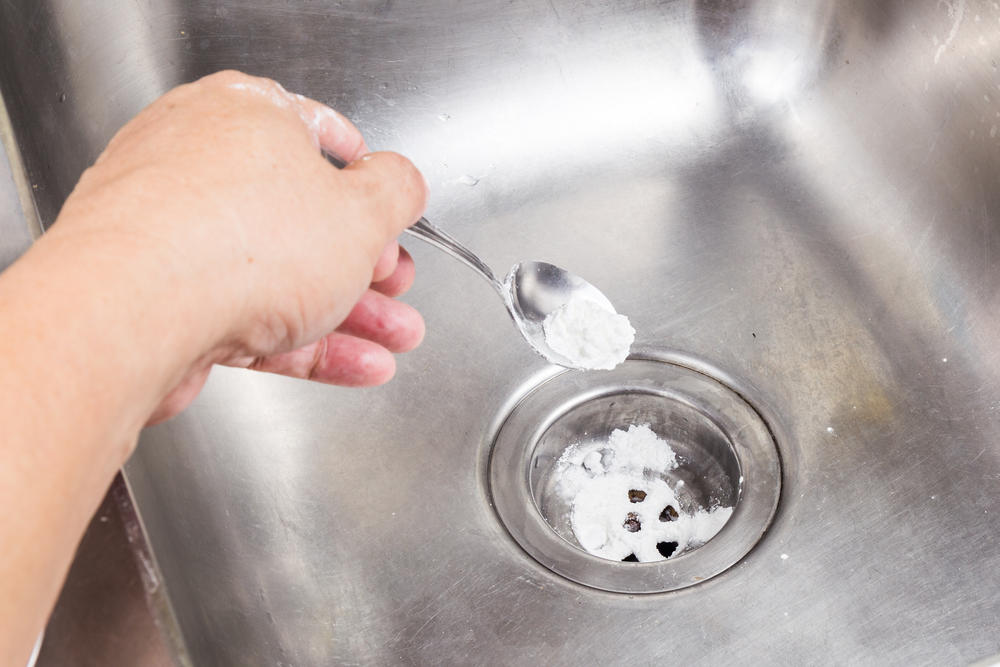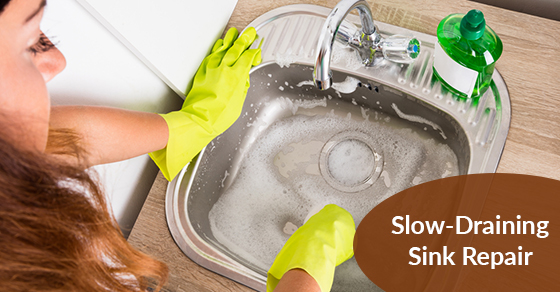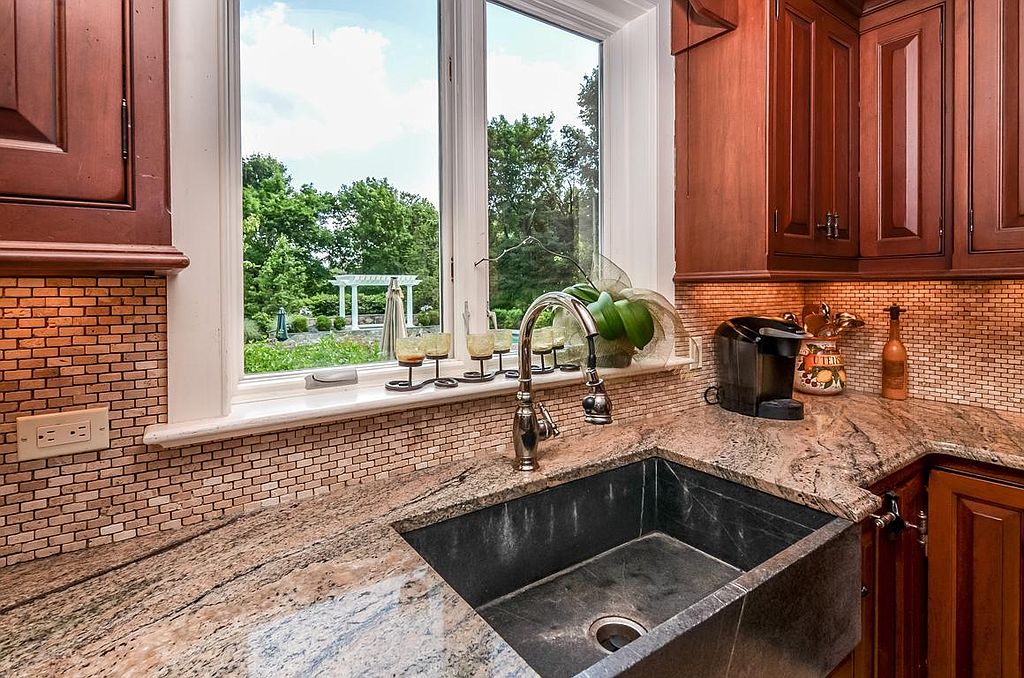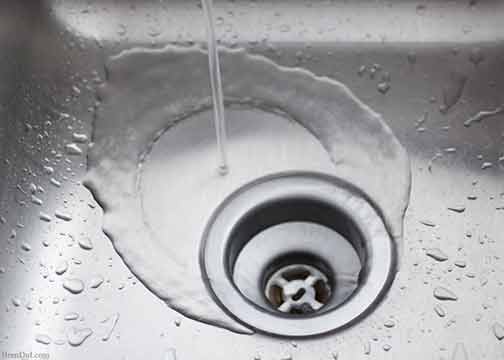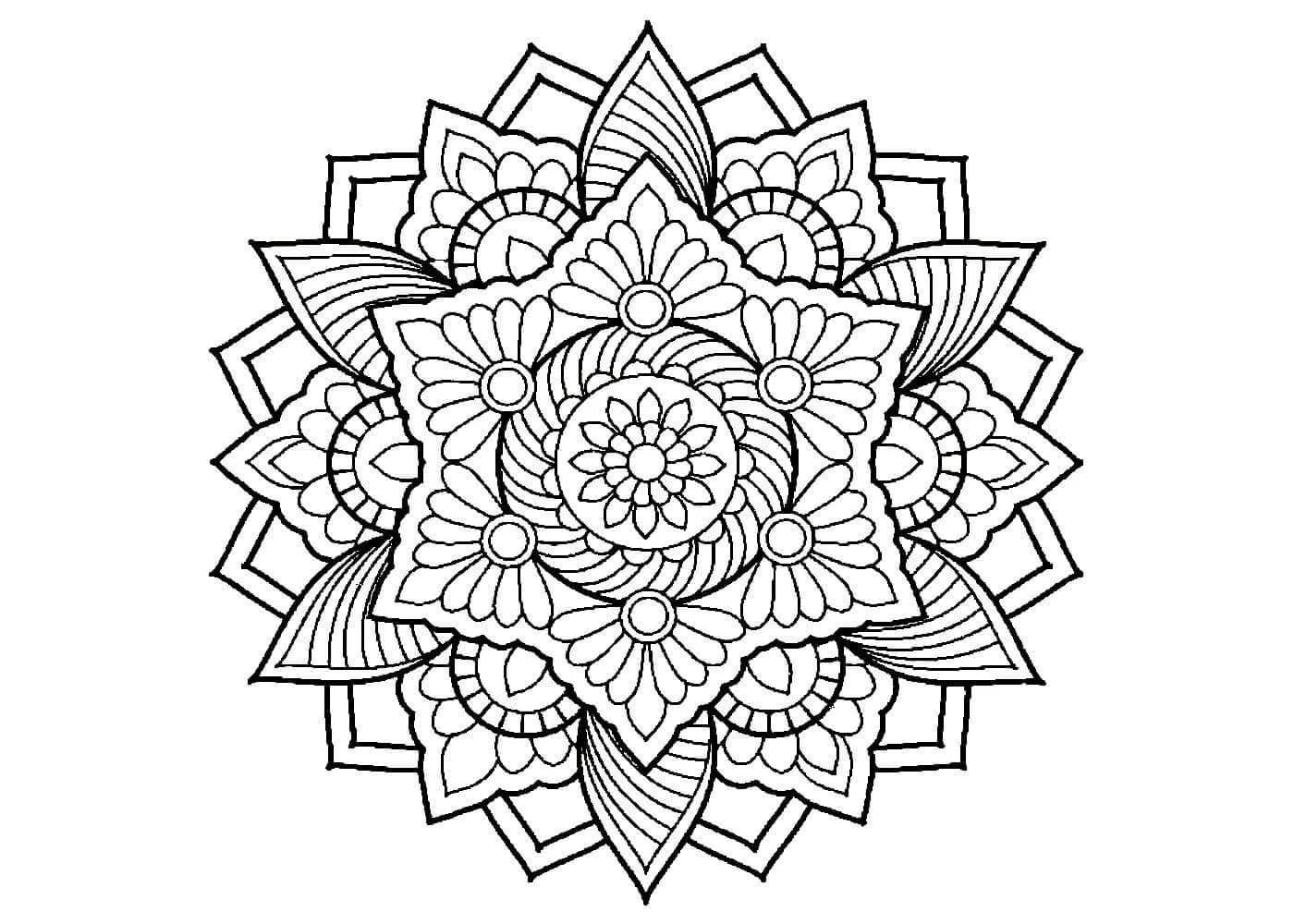If your kitchen sink water drains slow, it can be a frustrating and messy problem. Not only does it create a pool of dirty water in your sink, but it can also lead to unpleasant odors and potential damage to your plumbing system. However, before you call a professional plumber and spend a significant amount of money, there are a few steps you can take to unclog your kitchen sink drain yourself.Unclogging a Kitchen Sink Drain
The first step in fixing a slow-draining kitchen sink is to identify the cause of the blockage. In most cases, the blockage is due to accumulated food debris, grease, and soap scum. These substances can build up and create a stubborn clog in your drain. Fortunately, there are various methods you can use to clear the blockage and get your sink draining normally again.How to Fix a Slow-Draining Kitchen Sink
1. Plunger Method: This is the most common method used to unclog a kitchen sink. To use this method, place the plunger over the drain and push it down firmly to create a seal. Then, pump the plunger up and down several times until the clog is dislodged. 2. Baking Soda and Vinegar: This is a natural and effective way to unclog a kitchen sink drain. First, pour a pot of boiling water down the drain to loosen up the debris. Then, pour half a cup of baking soda followed by a cup of vinegar down the drain. Let the mixture sit for about 10 minutes before flushing it with hot water. 3. Hot Water and Salt: This method is suitable for minor clogs. Simply mix half a cup of salt with a pot of boiling water and pour it down the drain. The hot water and salt will help dissolve the clog and clear the drain. 4. Wire Hanger Method: If your sink is clogged with hair and soap scum, you can use a wire hanger to remove the debris. Straighten out a wire hanger and create a small hook at one end. Insert the hook into the drain and pull out any accumulated hair and debris. 5. Store-Bought Drain Cleaner: If the above methods do not work, you can try using a store-bought drain cleaner. However, be cautious when using these products as they can be harmful to your plumbing system and the environment.5 Ways to Unclog a Kitchen Sink Drain
If you prefer natural and DIY solutions to unclog your kitchen sink drain, here are a few methods you can try: 1. Boiling Water and Dish Soap: Boil a pot of water and mix in a few drops of dish soap. Pour the mixture down the drain and let it sit for a few minutes. Then, flush the drain with hot water to clear the clog. 2. Baking Soda and Salt: Mix equal parts of baking soda and salt and pour it down the drain. Follow it with a pot of boiling water and let it sit for 15 minutes before flushing it with hot water. 3. Plunger and Dish Soap: Apply dish soap around the rim of the plunger before using it. This will create a better seal and help loosen up the clog more effectively. 4. Vinegar and Salt: Mix half a cup of vinegar with a quarter cup of salt and pour it down the drain. Let it sit for an hour before flushing it with hot water.DIY Solutions for a Slow-Draining Kitchen Sink
There can be various reasons why your kitchen sink drains slowly. Some of the most common causes include: 1. Food Debris: Food debris such as oil, grease, and food particles can accumulate in your drain and cause a clog. 2. Soap Scum: Soap scum and mineral deposits can build up in your drain and create a blockage. 3. Hair and Other Debris: If you have a garbage disposal unit, hair, and other debris can get stuck in the blades and cause a clog. 4. Tree Roots: In rare cases, tree roots can grow into your plumbing system and cause a blockage in your kitchen sink drain.Common Causes of a Slow-Draining Kitchen Sink
In addition to the methods mentioned above, there are a few other steps you can take to clear a clogged kitchen sink drain: 1. Remove and Clean the P-Trap: The P-trap is the curved pipe located under your sink. It is designed to trap debris and prevent them from going further down the drain. However, it can also get clogged with accumulated debris. You can remove the P-trap and clean it to clear the clog. 2. Use a Plumbing Snake: A plumbing snake is a long, flexible wire that can reach deep into your drain and break up clogs. Insert the snake into the drain and twist it to break up the blockage. Then, flush the drain with hot water to clear the debris. 3. Call a Professional Plumber: If none of the above methods work, it is best to call a professional plumber. They have the necessary tools and expertise to clear even the most stubborn clogs and ensure your kitchen sink drain is functioning properly.How to Clear a Clogged Kitchen Sink Drain
Prevention is always better than having to deal with a clogged kitchen sink drain. Here are a few tips to keep your sink draining smoothly: 1. Use a Sink Strainer: Install a sink strainer over your drain to catch food debris and prevent them from going down the drain. 2. Avoid Pouring Grease Down the Drain: Grease and oil can solidify and create a stubborn clog in your drain. Dispose of them in the trash instead. 3. Run Hot Water After Each Use: Running hot water after each use can help flush away any accumulated debris and prevent them from building up in your drain. 4. Regularly Clean Your Garbage Disposal: If you have a garbage disposal unit, make sure to regularly clean it to prevent any clogs caused by accumulated debris.Tips for Preventing a Slow-Draining Kitchen Sink
Baking soda and vinegar are two common household items that can be used to unclog a kitchen sink drain. Here's how to use them: 1. Boil a Pot of Water: Boil a pot of water and pour it down the drain to loosen up any debris. 2. Pour Baking Soda and Vinegar: Mix half a cup of baking soda with half a cup of vinegar and pour it down the drain. The mixture will fizz and bubble, loosening up any clogs. 3. Let it Sit: Let the mixture sit for about 10 minutes to allow it to work on the clog. 4. Flush with Hot Water: After 10 minutes, flush the drain with hot water to clear the blockage.Using Baking Soda and Vinegar to Unclog a Kitchen Sink Drain
If the clog in your kitchen sink drain is severe, it may require professional solutions. Here are a few options: 1. Hydro Jetting: Hydro jetting is a method used by professional plumbers to clear stubborn clogs. It involves using high-pressure water to blast away any debris and buildup in your drain. 2. Video Pipe Inspection: A video pipe inspection is a non-invasive method used to identify the cause of the blockage in your drain. This allows plumbers to provide an accurate and efficient solution. 3. Chemical Drain Cleaners: Professional plumbers have access to stronger and more effective chemical drain cleaners than those available to consumers. They can use these products to clear even the most stubborn clogs.Professional Solutions for a Slow-Draining Kitchen Sink
It is essential to keep an eye out for any warning signs that your kitchen sink drain may be clogged. Some common signs include: 1. Slow-Draining Sink: This is one of the most obvious signs of a clogged kitchen sink drain. 2. Unpleasant Odors: If you notice a foul smell coming from your sink, it could be due to accumulated food debris and bacteria in your drain. 3. Gurgling Sounds: If you hear gurgling sounds when water is draining from your sink, it could be a sign of a clogged drain. 4. Water Backing Up: If water is backing up into your sink when you run the dishwasher or use the garbage disposal, it could be due to a clogged drain. In conclusion, a slow-draining kitchen sink can be a frustrating problem, but with the right methods and preventative measures, you can keep your drain running smoothly. Remember to regularly clean your sink and dispose of food debris properly to prevent clogs. And if you do encounter a clog, try the DIY solutions mentioned above, or call a professional plumber for a more thorough and efficient solution. Don't let a clogged kitchen sink drain slow you down in the kitchen. Take action and keep your sink functioning at its best.Signs That Your Kitchen Sink Drain Needs to be Unclogged
Why Your Kitchen Sink Water Drains Slow: Understanding and Solving the Issue
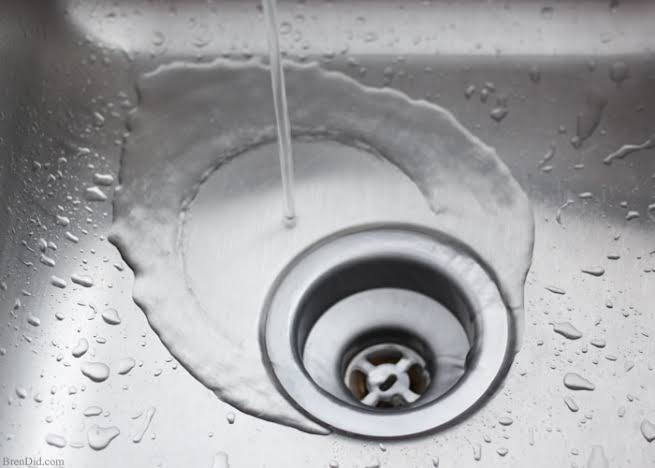
The Importance of a Well-Functioning Kitchen Sink
:max_bytes(150000):strip_icc()/how-to-install-a-sink-drain-2718789-hero-24e898006ed94c9593a2a268b57989a3.jpg) The kitchen sink is an essential part of any household, used daily for various tasks like washing dishes, preparing food, and even filling up a pot of water for cooking. It's a central fixture in any kitchen, and its functionality is crucial for a smooth and efficient workflow. However, if you've noticed that your kitchen sink water drains slowly, it can quickly become a frustrating and inconvenient problem to deal with.
The kitchen sink is an essential part of any household, used daily for various tasks like washing dishes, preparing food, and even filling up a pot of water for cooking. It's a central fixture in any kitchen, and its functionality is crucial for a smooth and efficient workflow. However, if you've noticed that your kitchen sink water drains slowly, it can quickly become a frustrating and inconvenient problem to deal with.
Common Causes of Slow Draining Kitchen Sinks
 There are several reasons why your kitchen sink may be draining slowly, each with its own set of solutions. The most common cause is a clogged drain, which can happen due to a build-up of food particles, grease, or even a small object stuck in the pipes. Another reason could be a poorly designed or installed plumbing system, leading to inadequate water pressure and slow drainage. Additionally, mineral deposits and corrosion can also cause blockages in the pipes, resulting in slow draining water.
There are several reasons why your kitchen sink may be draining slowly, each with its own set of solutions. The most common cause is a clogged drain, which can happen due to a build-up of food particles, grease, or even a small object stuck in the pipes. Another reason could be a poorly designed or installed plumbing system, leading to inadequate water pressure and slow drainage. Additionally, mineral deposits and corrosion can also cause blockages in the pipes, resulting in slow draining water.
Solving the Issue: Professional Help or DIY?
/how-to-install-a-sink-drain-2718789-hero-b5b99f72b5a24bb2ae8364e60539cece.jpg) The first step in solving a slow draining kitchen sink is to identify the root cause of the problem. If it's a simple clog, it can often be resolved with a plunger or some drain cleaner. However, if the issue persists, it's best to seek professional help from a licensed plumber. They have the necessary tools and expertise to pinpoint the problem and fix it efficiently.
The first step in solving a slow draining kitchen sink is to identify the root cause of the problem. If it's a simple clog, it can often be resolved with a plunger or some drain cleaner. However, if the issue persists, it's best to seek professional help from a licensed plumber. They have the necessary tools and expertise to pinpoint the problem and fix it efficiently.
Preventing Slow Draining Kitchen Sinks
 Prevention is always better than cure, and the same applies to slow draining kitchen sinks. By following some simple tips and practices, you can avoid this issue altogether. Avoid pouring cooking oil and grease down the drain, as they can solidify and create blockages. Regularly clean your drain and invest in a sink strainer to catch any food particles that may cause clogs. Also, be mindful of what you put down the garbage disposal, as fibrous and starchy foods can cause problems.
Prevention is always better than cure, and the same applies to slow draining kitchen sinks. By following some simple tips and practices, you can avoid this issue altogether. Avoid pouring cooking oil and grease down the drain, as they can solidify and create blockages. Regularly clean your drain and invest in a sink strainer to catch any food particles that may cause clogs. Also, be mindful of what you put down the garbage disposal, as fibrous and starchy foods can cause problems.
Conclusion
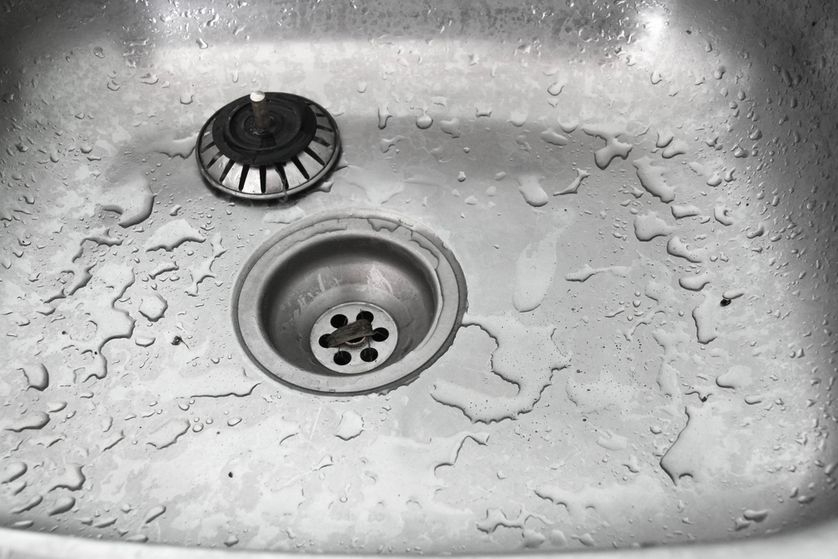 In conclusion, a slow draining kitchen sink can be a frustrating and inconvenient problem, but it's not an uncommon one. By understanding the cause of the issue and taking preventive measures, you can ensure that your kitchen sink functions properly and efficiently. And if all else fails, don't hesitate to seek professional help to get your kitchen sink water flowing smoothly again.
In conclusion, a slow draining kitchen sink can be a frustrating and inconvenient problem, but it's not an uncommon one. By understanding the cause of the issue and taking preventive measures, you can ensure that your kitchen sink functions properly and efficiently. And if all else fails, don't hesitate to seek professional help to get your kitchen sink water flowing smoothly again.
/plumber-unclogging-kitchen-sink-169270382-5797a9355f9b58461f27f024.jpg)



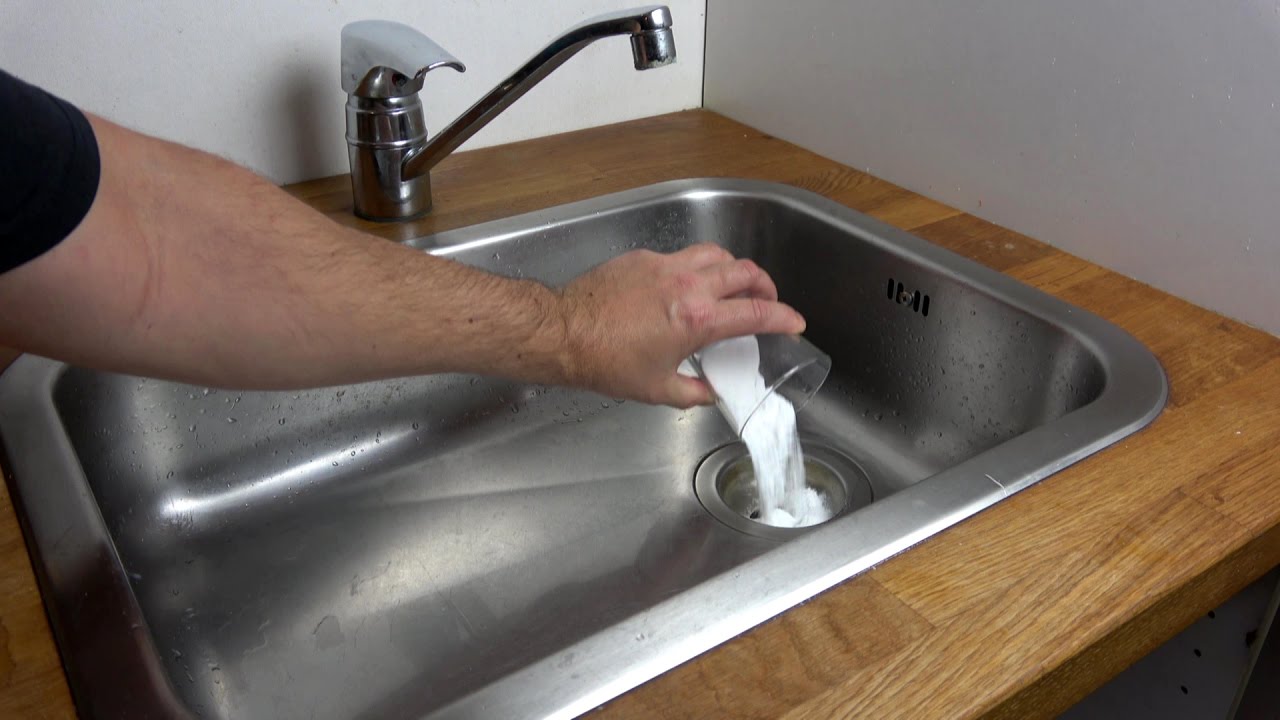

















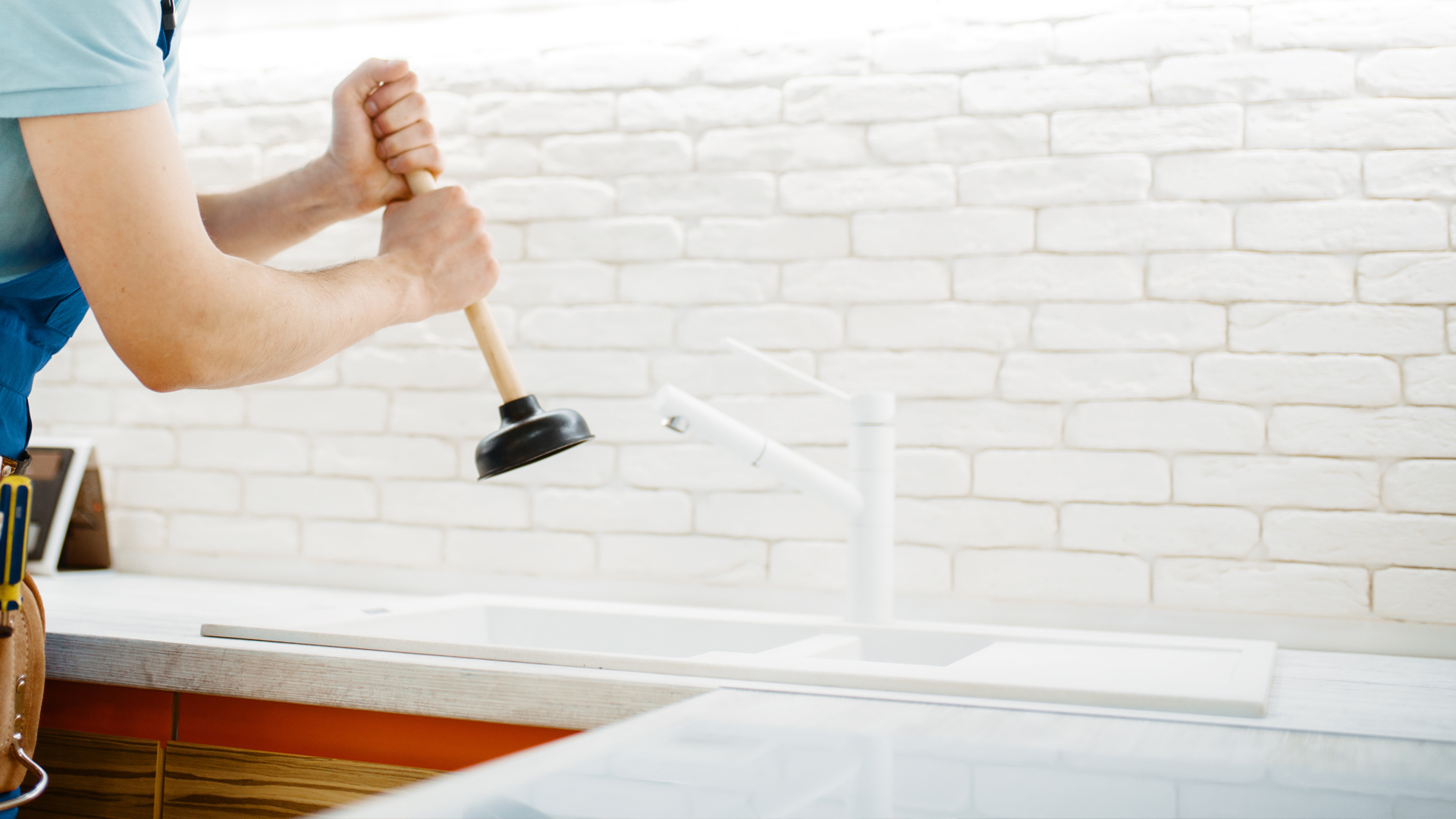






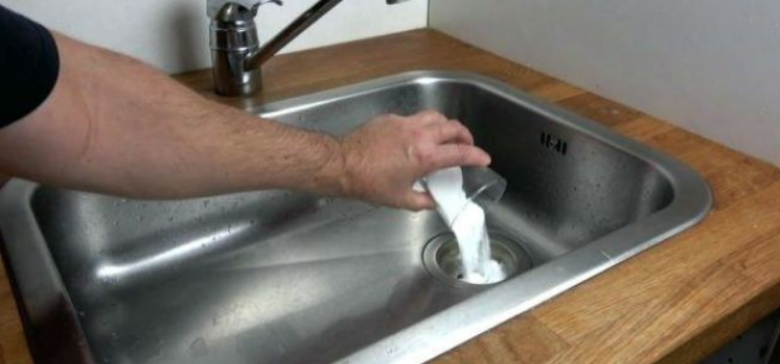
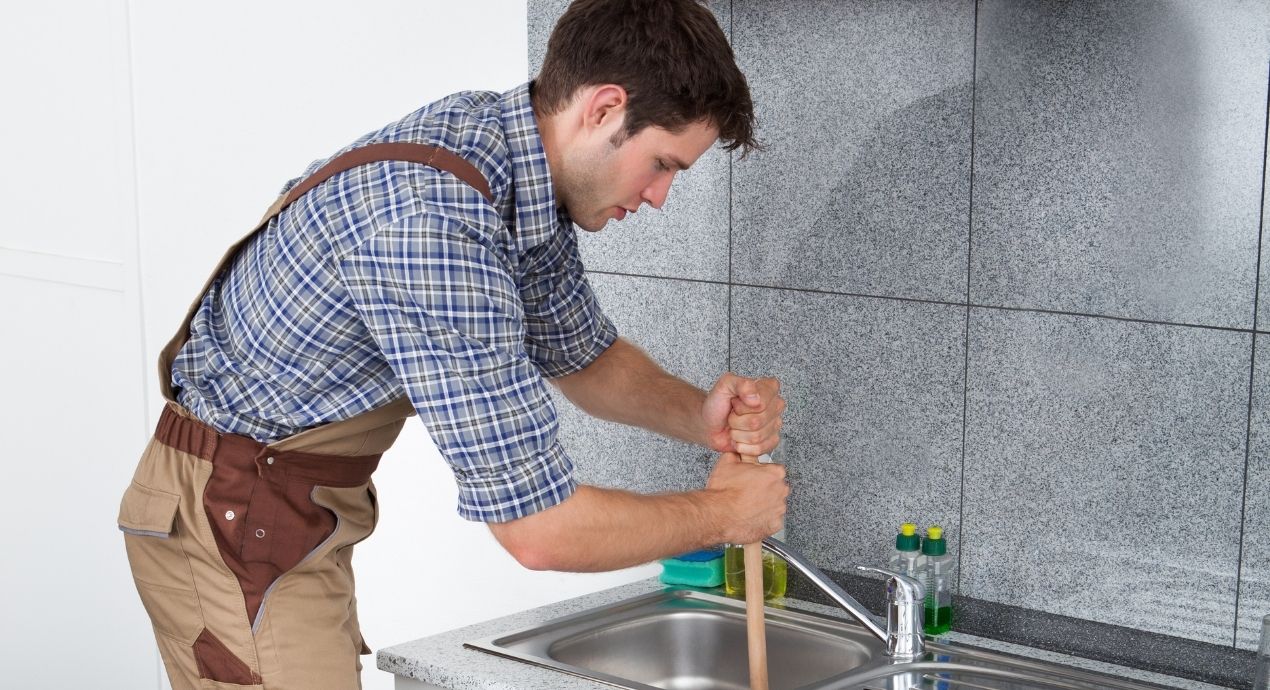


























:max_bytes(150000):strip_icc()/freshen-and-unclog-drain-with-baking-soda-1900466-22-bbf940b70afa4d5abef0c54da23b1d3f.jpg)




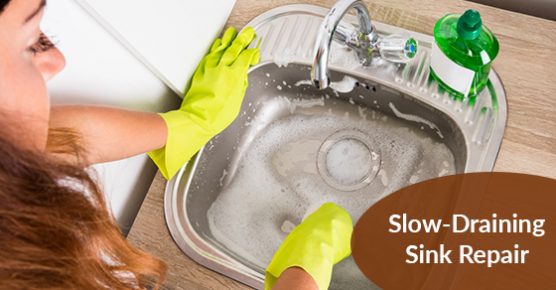


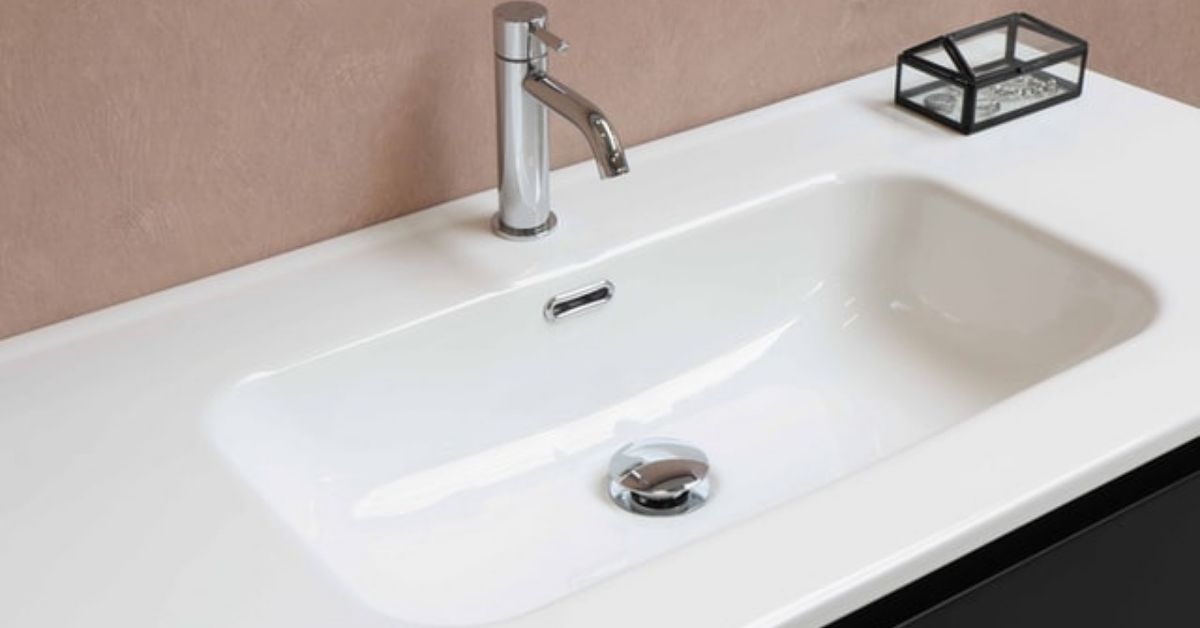



:max_bytes(150000):strip_icc()/freshen-and-unclog-drain-with-baking-soda-1900466-18-1a5b5da01939471ca8f8823865bd1ce8.jpg)
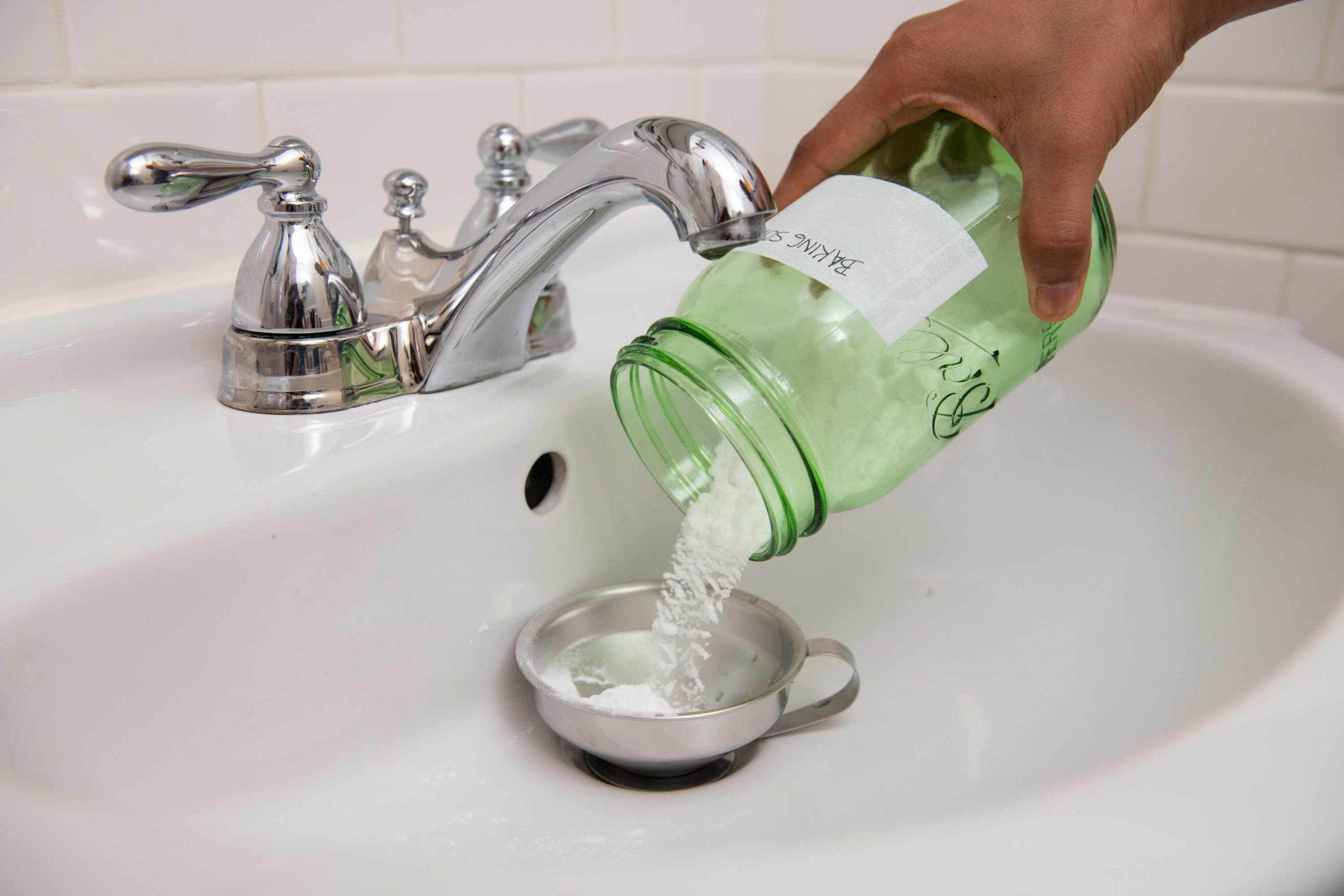


:max_bytes(150000):strip_icc()/freshen-and-unclog-drain-with-baking-soda-1900466-17-20179d73b7a2455797ebc6a5f5bf7479.jpg)

